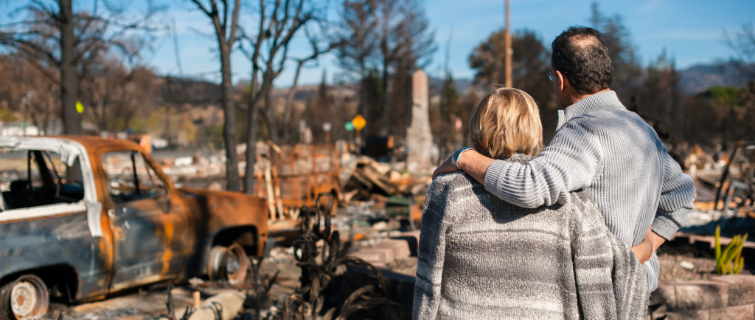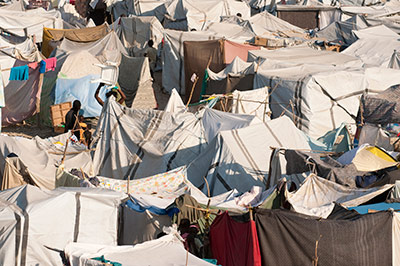
Washington, D.C. — Climate change, political upheaval, and economic forces are just a few of the factors driving one of the 21st century’s greatest challenges: the forced migration of human populations. A complex problem that requires a multifaceted solution, Georgetown University’s School of Continuing Studies has launched the Executive Master’s in Humanitarian Crisis & Emergency Management to prepare future leaders to handle global disasters and save lives.
From addressing global pandemics to terrorism, the program delves into natural disaster recovery, weapons of mass destruction, strategic leadership, and humanitarian crisis management. The 12-month program provides students with hands-on experience through five residencies to address challenges affecting societies worldwide. Two of the residencies will be online, and three will take place in Japan, Qatar, and Switzerland.
The program is proud to continue the School’s partnership with Georgetown University in Qatar (GU-Q). It will also provide students with opportunities to interact with the University’s global network of prominent agencies such as the London Fire Brigade, the Federal Emergency Management Agency (FEMA), the North Atlantic Treaty Organization (NATO), the European Union, Interpol, and others. This global perspective equips graduates with critical skills to develop ethical solutions to humanitarian crises while emerging as leaders in the field.
In an increasingly interconnected world, cultivating advanced humanitarian crisis and emergency management practitioners has become a global imperative. Kelly J. Otter, Ph.D., dean of the School of Continuing Studies, said that this program reflects Georgetown’s commitment to providing a world-class education that not only meets the needs of today’s professionals but also helps communities around the globe.
“Our students will emerge as leaders who can drive positive change in humanitarian crisis management, equipped with both practical skills and a global perspective,” Otter said.
Another distinctive feature of the program is Georgetown’s expert faculty, which comprises seasoned practitioners who impart practical knowledge in response, recovery, and mitigation—with a special emphasis on emergency preparedness on local, national, and international levels.
An expert on resilience and risk assessment and the faculty director of the program, Tim Frazier, Ph.D., is also a leading researcher, using GIS technology and spatial analysis for hazard mitigation planning and climate change adaptation. Frazier said that the program is designed for working professionals to gain invaluable real-world experiences that prepare them for success and safety in the field.
“The program equips leaders with the critical skills to evaluate and improve crisis management policies, ensuring ethical and effective responses to diverse and global crisis events,” said Frazier.
Current practitioners in healthcare, military, fire, law enforcement, private governmental sectors, and other related fields are encouraged to apply. The Executive Master’s in Humanitarian Crisis & Emergency Management program will hold its first webinar on Friday, November 1, from 12:00 to 1:00 p.m. ET for anyone interested in learning more.
Applications for the Fall 2025 term are due Tuesday, July 1. The $50 application fee will be waived for applications submitted by Tuesday, April 1. For more details and to apply, visit the Executive Master’s in Humanitarian Crisis & Emergency Management website.
About the Georgetown University School of Continuing Studies
Georgetown University's School of Continuing Studies offers graduate programs in professional and liberal studies, more than 30 professional certificate programs, custom and corporate training and education, summer school and special programs, as well as the University’s only part-time bachelor’s program. The School’s innovative educational programming creates opportunities for students and professionals to connect with industry leaders through learning and service.
